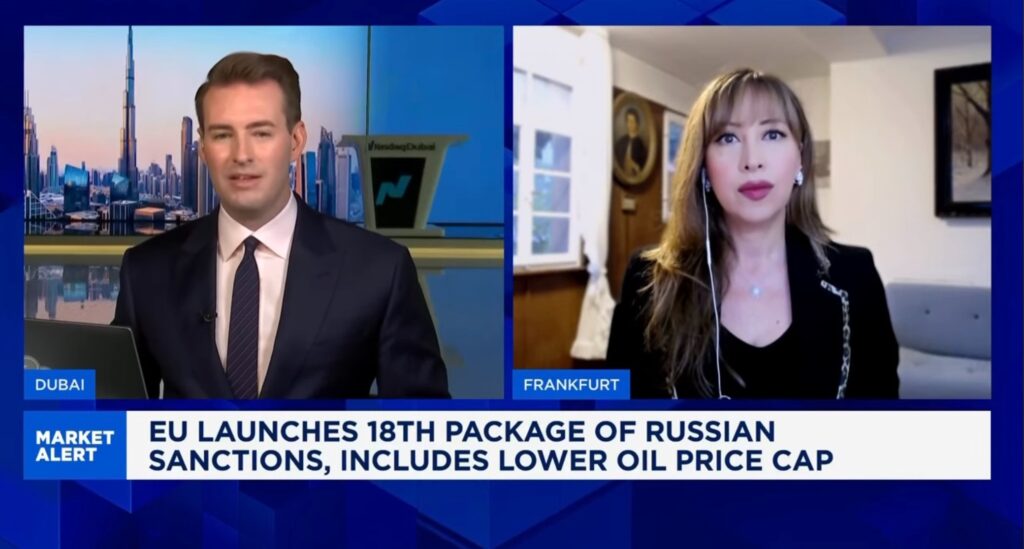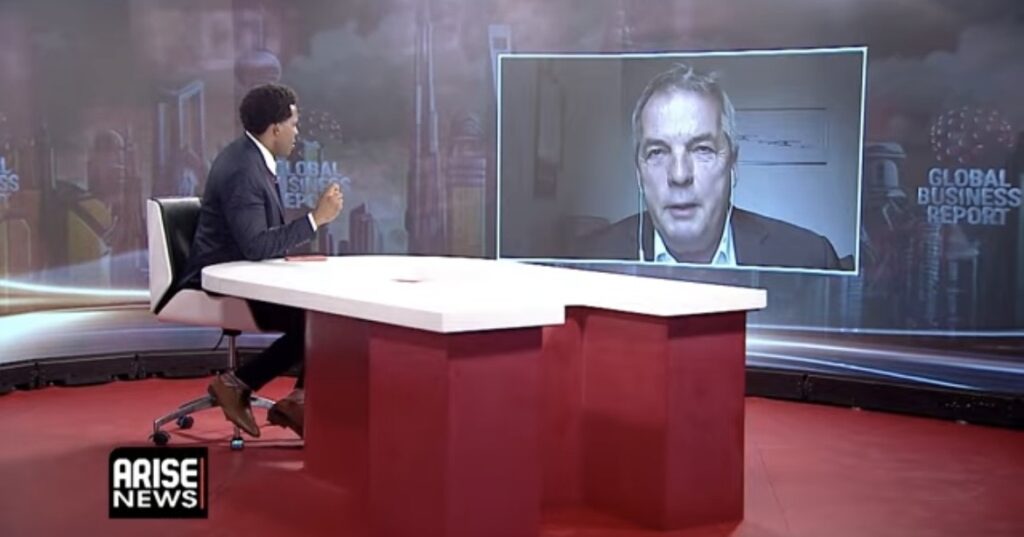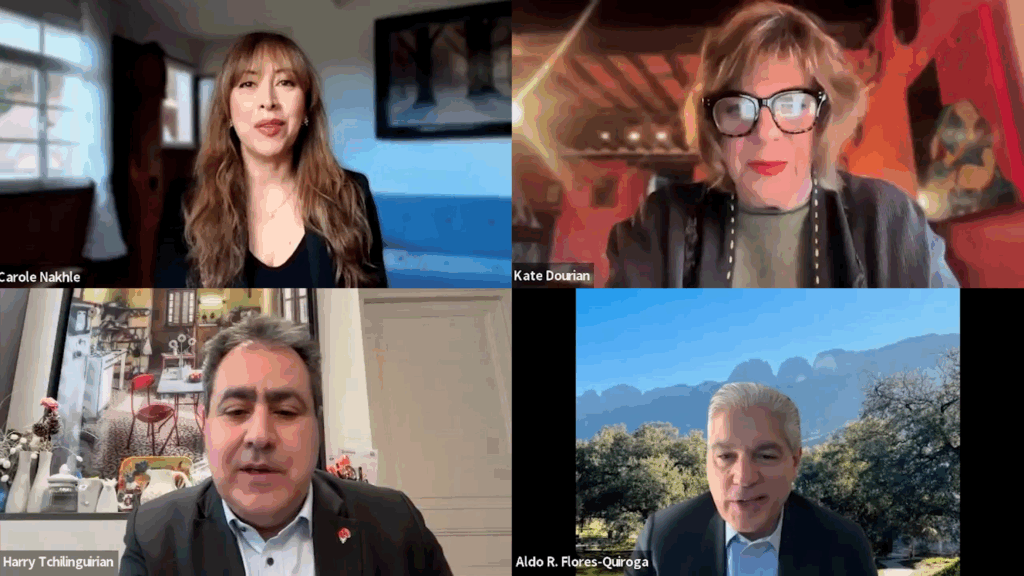Dr. Carole Nakhle, CEO of Crystol Energy, joined CNBC’s Business News with Dan Murphy to discuss the European Union’s 18th sanctions package on Russia, and why it could mark a turning point in the West’s economic strategy toward Moscow.

Key takeaways from the interview include:
- A more assertive EU approach: The EU is shifting toward sanctions that are more targeted, assertive, and dynamic. A notable change is the adjustment of the oil price cap—no longer fixed at $60/barrel, but now floating at 15% below global market prices, currently around $45–$50.
- Tightening the loopholes: New restrictions aim to close off the refined product loophole, targeting diesel exports from Indian refineries processing Russian crude—a critical channel that had softened the impact of earlier sanctions.
- Shadow fleet under pressure: The EU has blacklisted more than 100 additional tankers linked to Russia’s shadow fleet, raising the total to over 400 vessels—a significant effort to curb illicit oil trade.
- Growing pressure for secondary sanctions: Momentum is building not only in Europe but also in Washington, where calls are increasing for the U.S. to implement secondary sanctions. If enforced, these would dramatically expand the reach and impact of the current measures.
- Russia’s economy: Surviving, Not Thriving
Oil and gas still account for roughly 30% of Russia’s federal budget. While the economy remains afloat due to high defence spending and support from countries like China and North Korea, sanctions are steadily eroding its long-term capacity for growth and innovation. - Oil market reaction and risks: Markets have not yet reacted dramatically, reflecting continued scepticism over enforcement and Russia’s ability to reroute oil through opaque channels. However, the new package could tighten diesel supply in Europe. The real market disruptor would be U.S. enforcement of secondary sanctions—with global ripple effects.
Bottom Line:
This package marks a structural shift in how sanctions are designed and enforced. It’s no longer just about sending a message—it’s about changing the system. Whether it ultimately reshapes the geopolitical landscape will depend on international coordination and political will, particularly beyond Europe.
Related Comments
“Oil prices surge after Israeli-Iranian tensions“, Dr Carole Nakhle, June 2025
“Israel Attack On Iran Could Impact Global Monetary Policy“, Christof Rühl, June 2025








